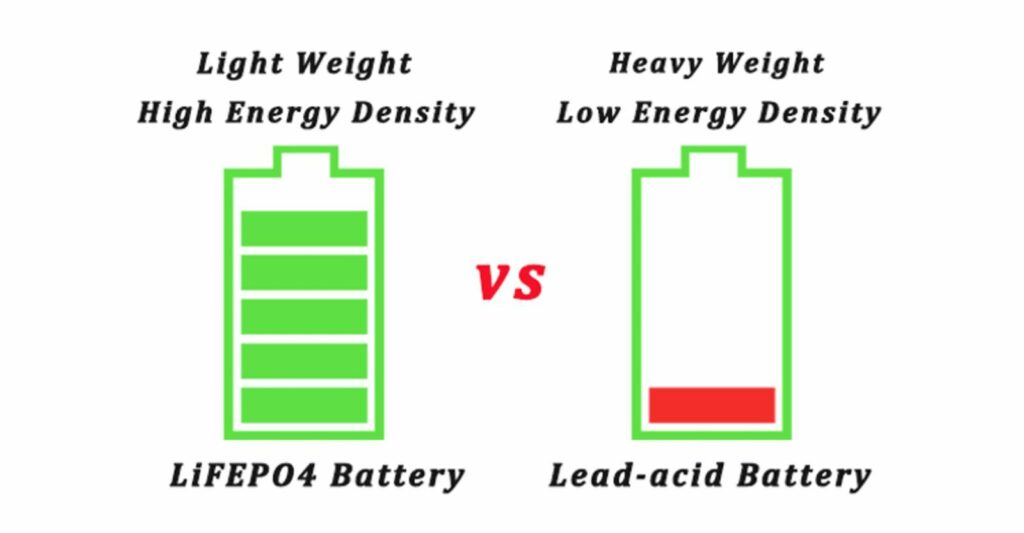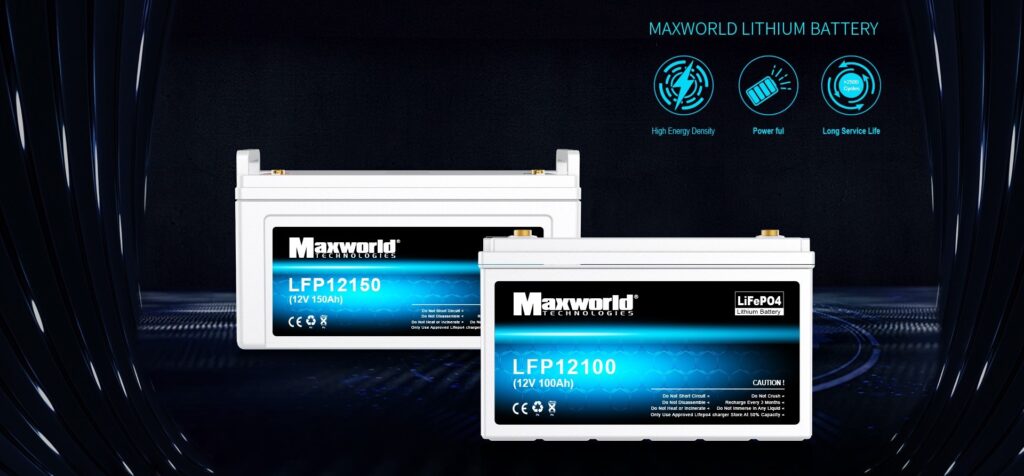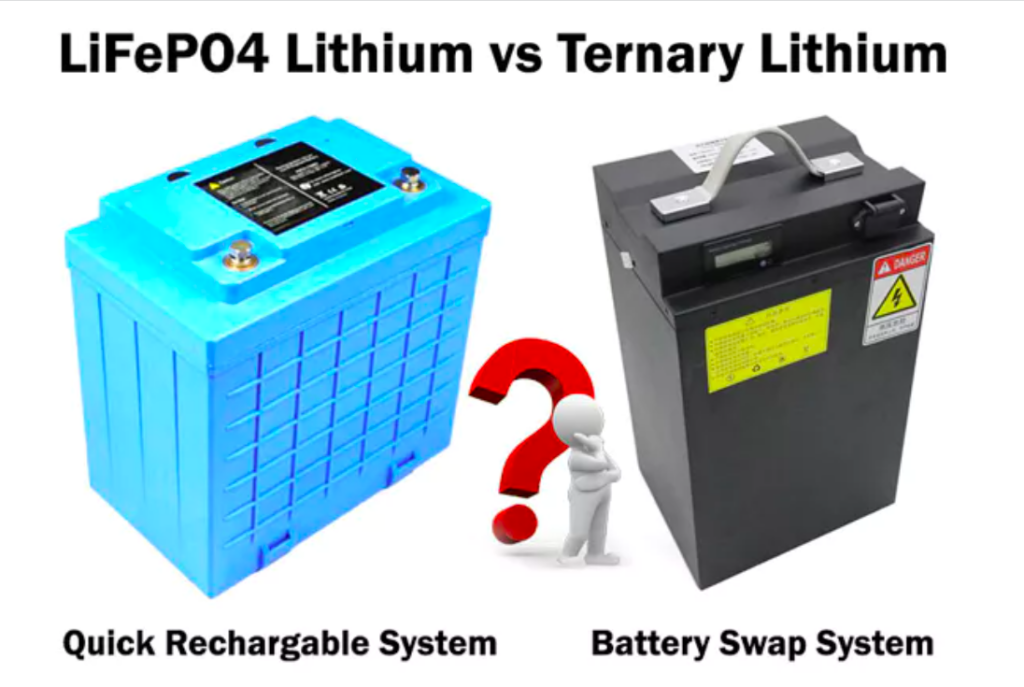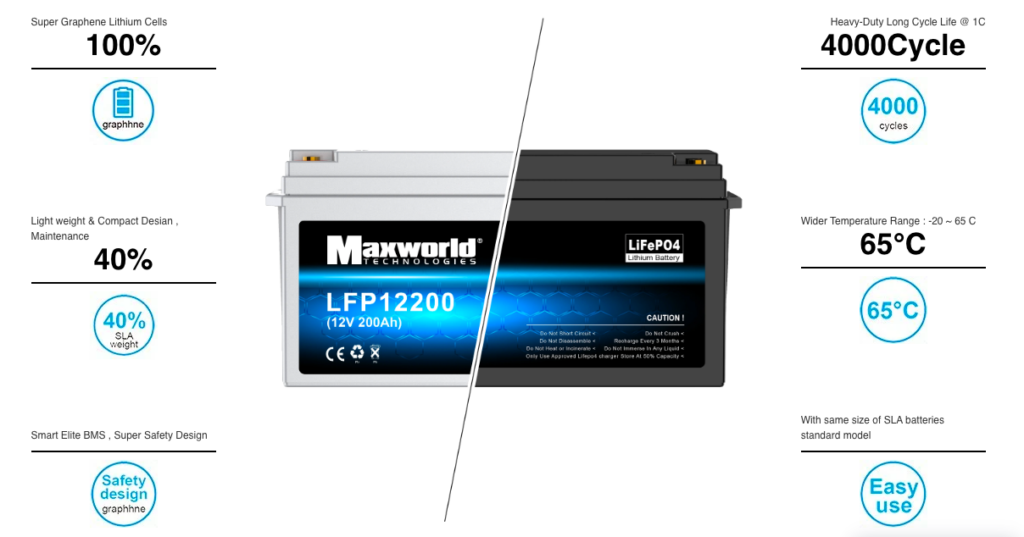When researching your power system for your van, you’ve probably come across various types of battery choices that you can incorporate into your build. Lead acid, nickel-cadmium, and lithium-ion are the most common types of batteries used in vans.
Why Use Lithium Ion Batteries for Van Life?
Lithium-ion batteries have become the most desirable, and best choice for van life batteries in campervans and recreational vehicles for several reasons:
- High energy density: 12v lithium-ion batteries have a high energy density, meaning they can store a lot of energy in a small space. This makes them ideal van life batteries where space is limited.
- Lightweight: Lithium-ion batteries are lighter than other types of batteries, making them easier to handle and install in a van.
- Long lifespan: Lithium-ion batteries can last for several thousand cycles, providing a long lifespan and reducing the need for frequent replacements.
- Low self-discharge rate: Lithium-ion batteries have a low self-discharge rate, meaning they lose very little energy when not in use. This is important for van life where the battery may not be used regularly.
- Higher voltage output: Lithium-ion batteries can deliver higher voltage outputs, which makes them suitable for running appliances such as lights, refrigerators, and charging devices.
- Low maintenance: They require very little maintenance, making them a convenient choice for your van life batteries.
That all sounds great, but what does it mean to have a high-density battery? And are 12v lithium-ion batteries they really the best vanlife battery choice out there?
In this article, we’ll talk about the definition of energy density and dimensions from two general concepts: a single cell and the battery system.
What is Energy Density?
Energy density in a battery refers to the amount of energy stored per unit of weight or volume. In other words, it’s a measure of how much energy a battery can store in a given space. The higher the energy density of a battery, the more energy it can store in a smaller size.
Energy density is often expressed in units of watt-hours per kilogram (Wh/kg) or watt-hours per liter (Wh/L).
Batteries with high energy densities are desirable because they offer more energy storage in a smaller and lighter package. This makes them ideal for portable devices, recreational vehicles, and other applications where weight and size are important considerations.
Lithium-ion batteries have a high energy density compared to other types of batteries, making them a popular choice for van life.

What is the Difference Between the Energy Density of a Battery Cell and a Battery System?
The energy density of a single cell of a battery refers to the amount of energy stored per unit of volume or weight within that individual cell. It is an intrinsic property of the cell and depends on the type of chemistry used in the cell, such as lithium-ion, nickel-cadmium, or lead-acid.
In contrast, the energy density of a battery system refers to the total amount of energy stored in the entire battery system, including multiple cells connected in series or in parallel. It takes into account not only the energy density of the individual cells, but also the volume or weight of the components connecting the cells, such as the casing, terminals, and electronics.
The energy density of a battery system is generally lower than the energy density of a single cell due to the additional volume or weight of the components connecting the cells. However, by connecting multiple cells together, a battery system can achieve a higher total energy storage capacity.

What limits the energy density of lithium batteries?
There are several factors that limit the energy density of lithium batteries:
- Electrode material: The energy density of a lithium battery is limited by the energy storage capacity of the electrode material. The choice of electrode material has a direct impact on the energy density and performance of the battery.
- Electrolyte: The energy density of a lithium battery is also limited by the choice of electrolyte, which must have a high enough ionic conductivity to allow the flow of lithium ions between the electrodes. The energy density of the electrolyte can also be limited by its volatility, stability, and safety.
- Battery design: The design of the battery, including the geometry and size of the electrodes, the thickness of the separator, and the type of electrolyte, can also limit the energy density of a lithium battery.
- Safety: The safety of the battery is a critical consideration, and the energy density must be balanced with the need for thermal stability and the avoidance of thermal runaway. This can limit the maximum energy density that can be achieved in a lithium battery.

How Can You Increase Energy Density in Lithium-Ion Batteries?
There are several ways to increase the energy density of lithium-ion batteries:
- Thinner electrodes: Decreasing the thickness of the electrodes can increase the energy density by allowing for more electrodes to be packed into a given volume.
- Higher voltage electrolytes: Increasing the voltage of the electrolyte can increase the energy density of the battery.
- Better electrolyte conductivity: Improving the ionic conductivity of the electrolyte can increase the efficiency of the battery and result in higher energy density.
- Optimized battery design: Optimizing the design of the battery, such as reducing the thickness of the separator and minimizing the amount of inactive material in the battery, can also increase energy density.
It is important to keep in mind that increasing energy density often involves trade-offs, such as lower battery stability and longer charging times. Hence, it’s important to optimize the design and materials to achieve a balance between energy density, safety, performance, and cost.
Summing It Up
Using lithium-ion batteries for van life is a no-brainer when considering the high energy density and long life compared to other types of batteries. The initial investment will be higher, but the long-term reward and peace of mind will be worth it when you’re out exploring the wide-open roads!
Many companies on Explore VanX’s build directory have utilized lithium batteries for van life – will you?
Visit maxworldpower.com to learn more!



